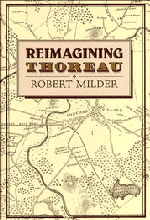3 - Disconstructing Walden
Published online by Cambridge University Press: 05 November 2011
Summary
When an art product once attains classic status, it somehow becomes isolated from the human conditions under which it was brought into being and from the human consequences it engenders in actual life-experience.
John DeweyThis is a long letter, but you are not at all bound to answer it. Possibly, if you do answer it, and direct it to Herman Melville, you will missend it – for the very fingers that now guide this pen are not precisely the same that just took it up and put it on this paper. Lord, when shall we be done changing?
Melville to Hawthorne, 1851Like the death of Emerson's wife Ellen in 1831 or of his brother Charles five years later, the death of John Thoreau in 1842 was critical in “terminat[ing] an epoch of infancy or of youth which was waiting to be closed” (CW II, 73), as Emerson generalized from his own experience of loss. Among other things, A Week is Thoreau's elegy for John, who, “freed from the limitations of human life,” as Linck Johnson observes, “had begun to assume to Thoreau the status of a pure idea.” A Week is also, however, Thoreau's valediction to his own outgrown self. The “wholly new life, which no man has lived” (Wk 377), and which Thoreau returns to Concord to attempt, will be a life not only without his brother but without many of the attitudes and postures adopted in his first book.
- Type
- Chapter
- Information
- Reimagining Thoreau , pp. 49 - 56Publisher: Cambridge University PressPrint publication year: 1995



